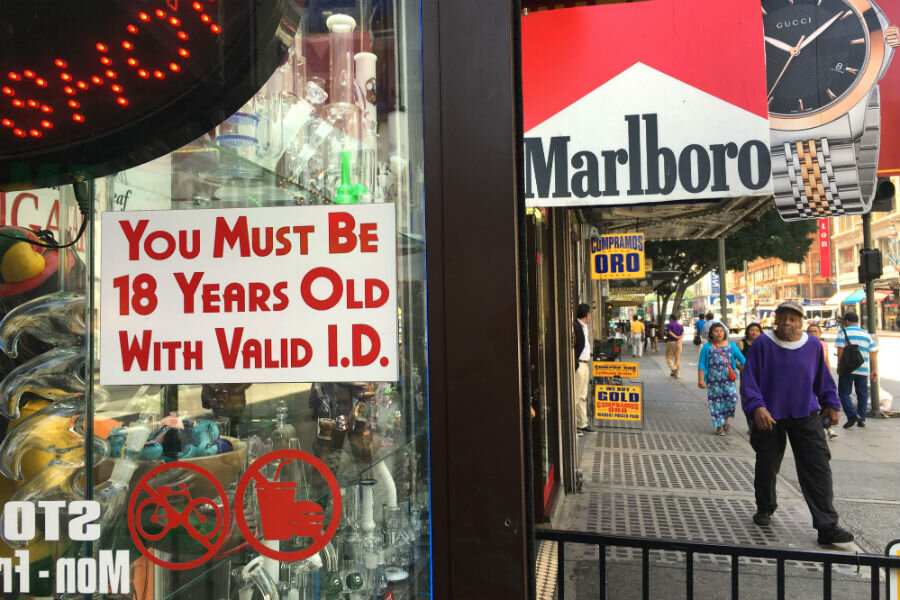Chicago poised to raise tobacco age to 21. Will Illinois follow?
Loading...
Chicago will join some 170 local jurisdictions around the country when it raises the minimum age for buying tobacco to 21 this week.
The requirement goes into effect following a March decision by the Chicago City Council's approval of a plan to increase the legal age as well as to ban smokeless tobacco at sports stadiums and raise taxes on tobacco products other than cigarettes.
The city is the latest in a string of jurisdictions to adopt more restrictive policies on tobacco products. In January, Hawaii became the first state to raise the minimum age for buying tobacco from 18 to 21. In May, California's governor signed a similar law.
Nationwide, the smoking rate has been falling since the release of a 1964 report from the US surgeon general linking smoking to a plethora of health risks, including lung cancer and heart disease. At the time, reported The Christian Science Monitor in May, about 42 percent of all adults in the United States smoked.
In a Centers for Disease Control and Prevention survey from this year, conversely, only 15 percent of adults surveyed said they had smoked within the past year – down from 17 percent the year before. Still, more than 480,000 Americans die each year from the negative effects of smoking, according to the CDC.
And among certain demographic groups, noted the Monitor in 2015, the smoking rate is not that much lower than it was in 1964. A CDC survey from that year found that 43 percent of people without a degree beyond a General Education Development (GED) certificate smoked. So did 29 percent of native American/Alaska Natives, 26 percent of those below the federal poverty line, and almost 28 percent of multiracial people.
Health advocates nationwide have promoted raising the legal minimum age as a way of keeping people from developing the habit as teenagers, having found school education programs largely ineffective.
They've been successful despite opposition from some corners, as the Monitor wrote after California passed its law:
California's bill stalled for six months because veterans groups and Republican legislators said that anyone old enough to die for their country as part of the armed forces was old enough to make decisions about tobacco use. A compromise broke the stalemate, so the bill exempts military personnel from the change.
Similar opposition arose in Hawaii. Advocates of raising the legal age, though, have marshaled a convincing series of studies showing its effectiveness. As the Monitor reported in March, one such study looked at the town of Needham, Mass., which passed such a measure in 2005:
By 2010, the researchers found, cigarette smoking among Needham High School students had dropped significantly more – from 13 percent to 7 percent – than among those in the surrounding suburbs, where the age restriction was not in place. The percentage of under-18s who bought cigarettes in stores also declined further in Needham than in the communities around it, according to the study.
This report contains material from the Associated Press.







